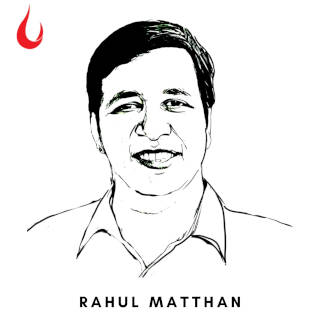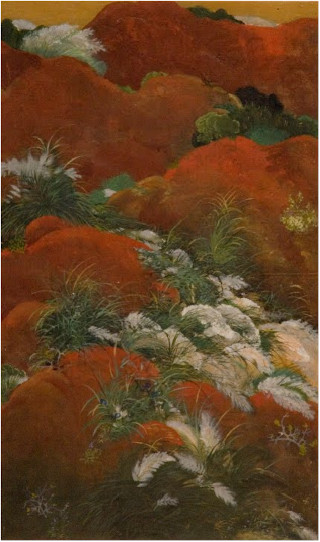[Photo by Christian Wiediger on Unsplash]
Good morning,
There is no doubt in our minds that Man’s Search for Meaning by Viktor Frankl is one of the most important books of our time. It’s a book we feel compelled to revisit every once a while because it reminds us of our frailties, optimism, resilience, and all of what it means to be human.
“My mind still clung to the image of my wife. A thought crossed my mind: I didn’t even know if she were still alive. I knew only one thing—which I have learned well by now: Love goes very far beyond the physical person of the beloved. It finds its deepest meaning in his spiritual being, his inner self. Whether or not he is actually present, whether or not he is still alive at all, ceases somehow to be of importance…
“This intensification of inner life helped the prisoner find a refuge from the emptiness, desolation and spiritual poverty of his existence, by letting him escape into the past. When given free rein, his imagination played with past events, often not important ones, but minor happenings and trifling things. His nostalgic memory glorified them and they assumed a strange character. Their world and their existence seemed very distant and the spirit reached out for them longingly: In my mind I took bus rides, unlocked the front door of my apartment, answered my telephone, switched on the electric lights. Our thoughts often centered on such details, and these memories could move one to tears.
“As the inner life of the prisoner tended to become more intense, he also experienced the beauty of art and nature as never before. Under their influence he sometimes even forgot his own frightful circumstances. If someone had seen our faces on the journey from Auschwitz to a Bavarian camp as we beheld the mountains of Salzburg with their summits glowing in the sunset, through the little barred windows of the prison carriage, he would never have believed that those were the faces of men who had given up all hope of life and liberty. Despite that factor—or maybe because of it—we were carried away by nature’s beauty, which we had missed for so long.”
In this issue,
- The Government versus WhatsApp
- Are team-mates extended family?
- [Art] Laughter
The Government versus WhatsApp
That WhatsApp has gone to court against the Government of India over the new digital rules it wants implemented has grabbed the headlines. The messaging service has contended that complying with this order does not just violate a user’s privacy, but is in dissonance with the fundamental right to free speech enshrined in the Constitution. On its part, the GoI has argued WhatsApp’s policies are “discriminatory” against Indian users.
How is anyone to look at this? Rahul Matthan, partner at Trilegal, has been following the fracas closely. Earlier in March, he asked if the government realises how tough the ask really is.

“The deeper I dug, the more obvious it became that rather than providing clarity, things were about to become significantly more confused.”
“The only way I know, to enable the identification of the first originator of the message, is to tag each message with a unique identifier and associate it with its creator—so that no matter how many times it is subsequently forwarded the author is always identifiable. One reason why no-one does this is because of the sheer scale of technological challenge this poses. Over 100 billion messages pass through the WhatsApp servers every single day. Identifying who the first ordinator of a message that was created in that same day would, in itself, be a mammoth task. But in order to do what the Indian government wants, messaging companies will need to create a system that tracks every message that was ever created and make it so that even years later, the first originator can be tracked.
“As much as this is a tech challenge, there is a second, far more important consideration. If every single message that has ever been sent is made identifiable and traceable to its creator it will create a panopticon of intimate information, the likes of which has never existed before. Even if only a minuscule fraction of these messages are ever requested by the government, the fact that the message history of every user is available for the asking constitutes, in my view, an egregious violation of person privacy that is not only utterly disproportionate to the objective it is supposed to achieve, but will also ultimately fail to achieve that end.”
In his most recent post, Matthan made a wry comment. “I can't help wonder whether this is just a case of someone in the government being upset that they weren’t given a blue tick.”
Dig deeper
- Traceability is antithetical to liberty (Rahul Mattan)
- Intermediaries Liable (Rahul Matthan)
- 10 points on WhatsApp verus Government’s new rules (NDTV)
Are team-mates extended family?
A note that went out from Tobi Lutke had our attention earlier this week. Because it attempts to address a question that is top of mind for most people. Are the people you work with as good as your family? The letter, addressed to people employed at Shopify.com, the firm Lutke is CEO of, was unambiguously clear. NO!
“We all have to re-qualify for our jobs every year.”
“Shopify, like any other for-profit company, is not a family. The very idea is preposterous. You are born into a family. You never choose it, and they can’t un-family you. It should be massively obvious that Shopify is not a family but I see people, even leaders, casually use terms like ‘Shopifam’ which will cause the members of our teams (especially junior ones that have never worked anywhere else) to get the wrong impression. The dangers of ‘family thinking’ are that it becomes incredibly hard to let poor performers go. Shopify is a team, not a family.
“Shopify is also not the government. We cannot solve every societal problem here. We are part of an ecosystem, of economies, of culture, and of actual countries. We also can’t take care of all your needs. We will try our best to take care of the ones that ensure you can support our mission. Shopify’s worldview is well documented—we believe in liberal values and equality of opportunity. Sometimes we see opportunities to help nudge these causes forward. We do this because this directly helps our business and our merchants and not because of some moralistic overreach.”
But there are some points, he said, where ground must be conceded. “We will always have compassion for team members in truly difficult situations. For example, those who find themselves suddenly becoming primary caregivers or those who are struggling with mental health issues. There are also second chances, especially for those who have been top performers before. Outside of those cases we need to remind everyone that like any other competitive (sports) team, it matters how you show up every day and contribute to the team’s success.”
After you’ve read what he has to say, we’d love to hear what you think about his stated position.
Dig deeper
(Art) Laughter, by Benode Behari Mukherjee
I first saw this painting in the early 1990s at the National Gallery of Modern Art in Delhi. I was on a summer gig handling the merchandise counter for a curated exhibition. During lulls I'd view the exhibition. And every time I'd find myself riveted by this piece of art, absorbing the colours and those white ferns swaying on red hills. And feeling simple joy. There's an aura to this painting that a reproduced image can't capture. ~ Sveta Basraon
Click on the image to view it on Google Arts & Culture
What’s helping you get through these tough times? Send us the song, poem, quote that is your balm now. And we will share it through this newsletter.
And if you missed previous editions of this newsletter, they’re all archived here.
Bookmark Founding Fuel’s special section on Thriving in Volatile Times. All our stories on how individuals and businesses are responding to the pandemic until now are posted there.
Warm regards,
Team Founding Fuel
(Note: Founding Fuel may earn commissions for purchases made through the Amazon affiliate links in this article.)



